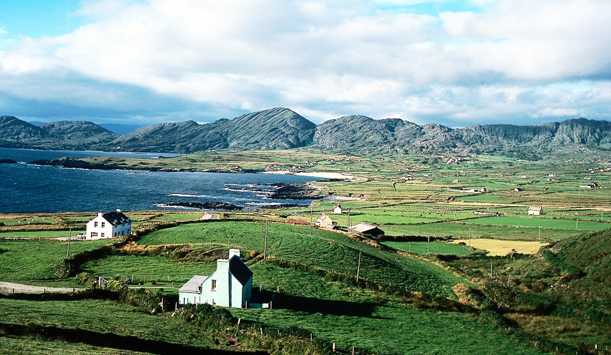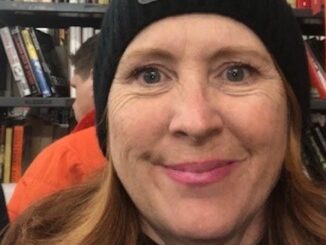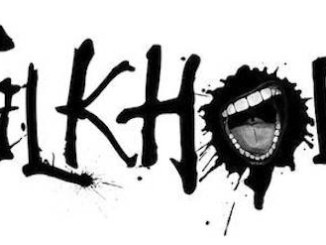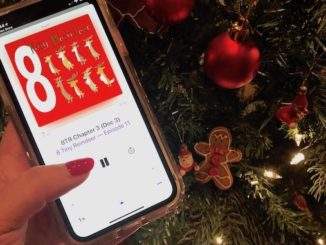Stories can lock us in with every breath and every word whether it be told on screen, stage or in a book. A good story gives us a break from our daily routine and how we consume them is a personal preference. West Cork is the latest 13-part audio series on audible.ca that has us asking “who did it?” in this real-life hunt for the suspect.
This gripping original series is based on the true, and unsolved, crime of Sophie Toscan du Plantier, the French film producer who was mysteriously killed at her vacation home in West Cork, Ireland, 20 years ago. By the way, this case is ongoing before the courts.
Created by Jennifer Forde, a UK based documentary television producer who’s worked with the BBC and some of Britain’s leading independent production companies, along side Sam Bungey, a journalist based in London, they believe strongly that the most important part of telling any story is letting the people who have lived it tell it for you.
The story has numerous twists and includes personal stories from West Cork locals including the prime suspects themselves. The series is well written and well narrated and has hooked us right from the start.
We had a chance to chat with Jennifer and Sam to find out more:

What drew your interest in this particular true unsolved crime story?
We found this short article, which was a report framing the story as a possible police corruption case. A suspect suing the police for wrongful arrest and a lifetime of harassment. We went and sat in on this trial in Dublin, and found that it was a lot more complex than that. There was standing room only, the court was filled with members of the public, obsessed with this suspect and the 18 year-old case. He is a curious guy, in an extreme situation. And after a few strange and surprising meetings with him down in West Cork he became the first draw for us.
Then West Cork itself became fascinating. People’s stories have changed over the years, and a bunch of competing narratives have emerged about what happened during the investigation. They can’t all be true, and it can difficult to know who or what to trust. We wanted to try to go directly to those witnesses, and to lay these narratives out side by side and see how they stack up.
This story is not read from a script, rather it’s told first hand accounts and a more investigative style. Tell us more and why you chose that direction?
We have told this story as if the listener knows nothing of the crime or the investigation. We tell it from the perspective of West Cork, as it happened. So you don’t find out who the main suspect is until the end of the fourth episode.
The reason we structured it like this is that we heard from a lot of people involved in this story that once this suspect is in the frame you can’t really take a straight look at the case. The suspect claims that a false narrative has been built around him as a suspect, while his accusers claim he made it impossible to consider other alternatives. So we wanted to take advantage of our position as outsiders in that way.
We also didn’t want this story to be just about the suspect. We were very conscious we didn’t want to use Sophie as a one-dimensional victim, in a case crowded out by dominant personalities and issues. A lot of people have said to us that over the years Sophie has felt forgotten in this saga in Ireland. So we wanted to be able to present her as a full character, first. And we felt that the best way to do that was to bring her to life through interviews with the people who knew her best – her son, her brother, her uncle, her best friend.
The same goes for the people of West Cork. This story isn’t just about the suspect and the victim, its affected many people in quite significant ways. We wanted to include all these stories by getting people to tell us first hand. There have been so many rumours that have hampered the case for years, a big part of our approach with people was to tell them that we were only asking people to tell us about things that they had witnessed first hand, about their direct experiences.
Creating this investigative piece in an audio format brings us back to times of great storytelling. I envision my grandparents sitting around the radio listening to weekly broadcasts. Now it’s for a new generation. With the story being told on this platform, we can access it at our own pace. So, with that in mind, did that affect how you approached the production or direction of this series?
In terms of how it shaped our production — it gave us freedom in structuring the story, like we didn’t have to worry about rigid episode lengths for example. As it was just us and a microphone, we were a fairly non-threatening entity, which perhaps allowed us to get further with people than we may have done with a film crew, say.
But listening to a podcast is also often a more intimate experience than with other mediums – most people listen by themselves on headphones, so we really wanted to transport the listener from their daily commute or wherever in their world they’re listening to it to a world that we’d created, through the voices of the people of West Cork.
Still, it’s funny you mention your grandparents listening together, because we have had people tell us they have listened to the series as couples, with one not allowed to get ahead of the other, and even as even a whole family, sitting around the living room of an evening. And perhaps this series, with all its twists and turns, does lend itself to that – people are quickly keen to discuss this mystifying case and its various characters, as we did endlessly over the three years we spent making it. There are several plot twists in the series we hope lead listeners to rethink everything they’ve heard.
What was the most interesting part of this experience for you?
We were constantly having most basic assumptions about the case undermined by something else we found out, speaking to some new witnesses or wading through the mountains of documents we got hold of from the investigation.
What was most challenging, or rewarding, about creating this series?
We were sensitive to being outsiders and we knew that in order to tell this story authentically, we would need Sophie’s family and the West Cork community to be willing to speak with us. Thankfully, her family did graciously agree to participate. And what we found in West Cork, which is a very remote and tight-knit community, was that, contrary to what might be expected, people were not only open to talking about their first-hand experience, some people even told us they found it cathartic.
Where there any surprises for you along the way?
We worried we’d feel still on the outside of such a sensitive story in the end, that we’d come away with big questions we still want to put to people. But we were surprised so many people spoke to us so openly.
West Cork is an exclusive, and original, audio series available through audible.ca Free until May 8, 2018.
Here’s one of the trailers:




